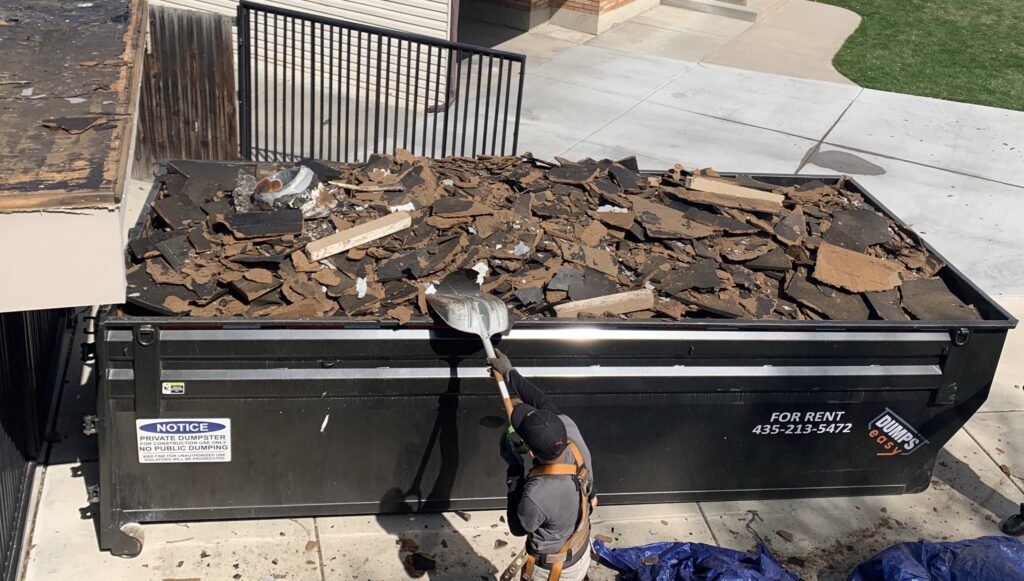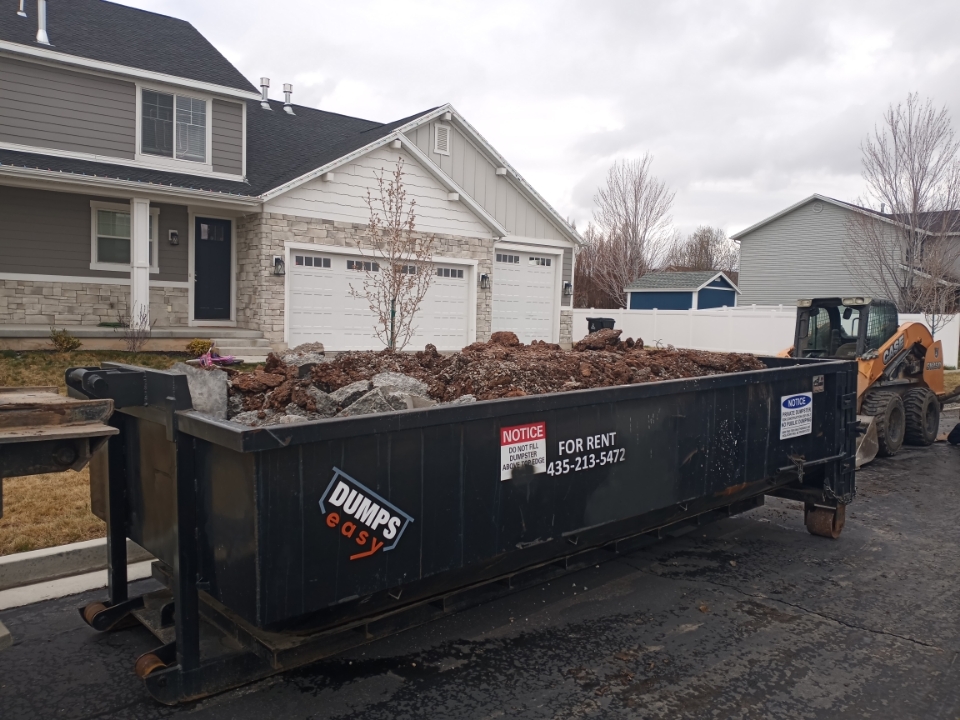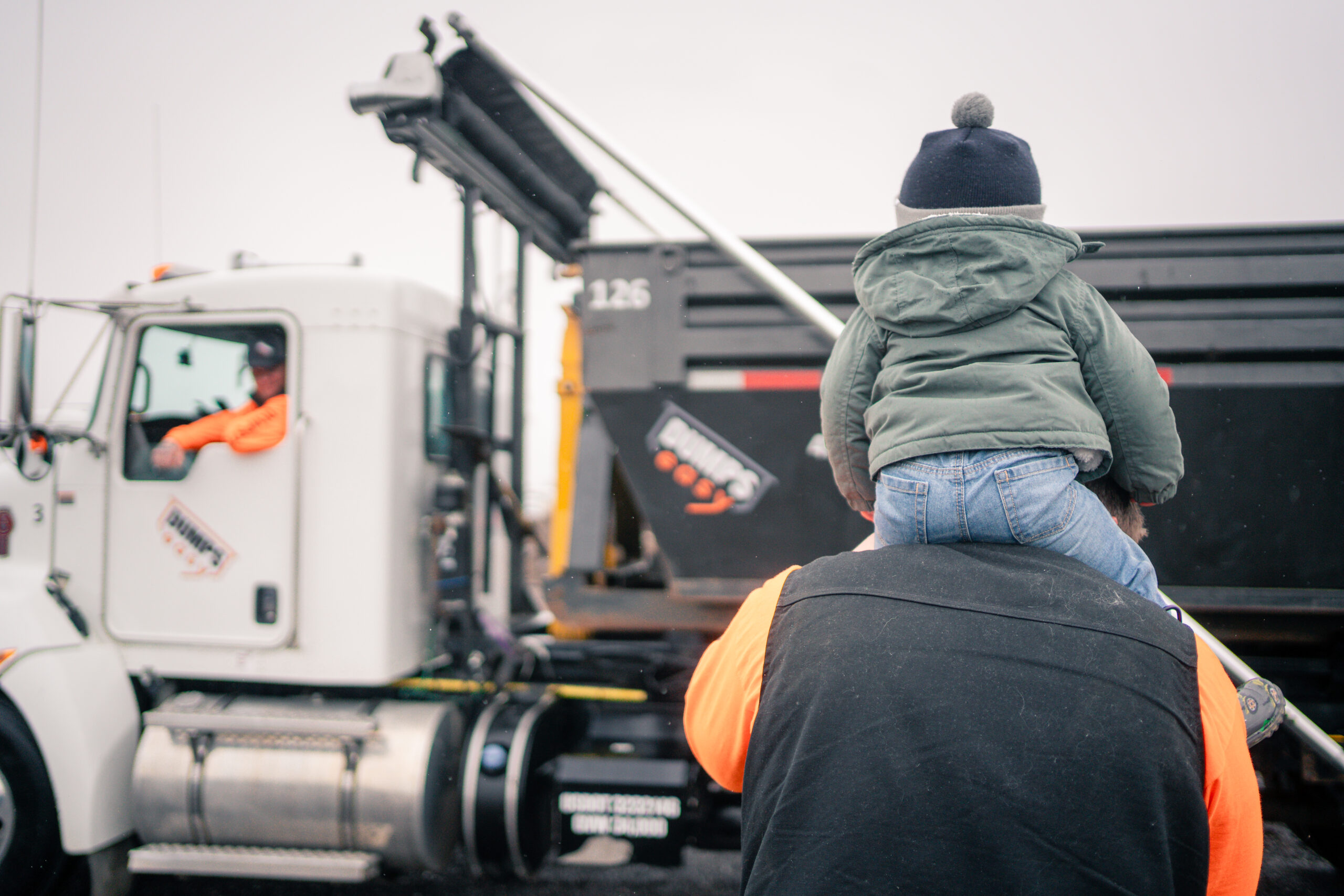Ever wondered why dumpsters come with strict weight limits? It might seem like just another rule, but these dumpster weight limits are there for some very important reasons. Whether you’re tackling a home renovation, a big cleanout, or a construction project, understanding why weight limits exist can save you from unexpected costs, safety hazards, and even legal trouble. Dumpsters are built to handle a lot, but even they have their breaking point. In this blog, we’ll dive into the reasons behind dumpster weight limits, and why sticking to them is crucial for a smooth and successful cleanup.

The Basics of Dumpster Weight Limits
Understanding dumpster weight limits is crucial for efficient and safe waste disposal. A weight limit refers to the maximum amount of weight that a dumpster can safely hold. Exceeding this limit can lead to a range of issues, including damage to the dumpster, difficulty in transporting it, and potential fines.
Weight limits vary based on the size of the dumpster. For example, a 10-yard dumpster typically has a limit of 1-2 tons, while a 20-yard dumpster can hold up to 3-4 tons. These limits are set to ensure safe and efficient handling by waste management companies. Being aware of these limits helps you choose the right dumpster for your project and avoid additional costs or complications.
Structural Integrity of the Dumpster
Exceeding a dumpster’s weight limit can seriously compromise its structural integrity. Dumpsters are designed to handle a specific amount of weight, and going over that limit can cause significant damage. For instance, the walls can bend or buckle under excessive pressure, and the floor panels might crack or break, making the dumpster unsafe to use.
Maintaining the structural integrity of a dumpster is essential for both safety and longevity. A damaged dumpster is not only a safety hazard, but can also lead to additional costs for repairs or replacements. By adhering to weight limits, you ensure that the dumpster remains functional, safe, and reliable for its intended use.
Safety Concerns During Transport
When a dumpster exceeds its weight limit, the excess weight can cause it to become unbalanced, increasing the risk of it tipping over during loading or transport. This can lead to dangerous accidents, especially if the dumpster tips over on the road, endangering both the driver and others nearby.
An overweight dumpster also puts excessive strain on the hauling vehicle. The extra weight can damage the truck’s suspension, brakes, and tires, potentially leading to costly repairs or even vehicle failure. Overloaded trucks are harder to control, which increases the risk of accidents, particularly on inclines or uneven terrain.

Legal and Regulatory Compliance
Legal weight restrictions for vehicles on public roads and highways are in place to ensure safety and prevent damage to infrastructure. When a dumpster exceeds its weight limit, the hauling vehicle may surpass these legal limits. Overweight loads can result in fines, penalties, and even legal issues, as they violate transportation laws.
Environmental Considerations
Overloading dumpsters has a significant environmental impact. When a dumpster exceeds its weight limit, the hauling vehicle requires more fuel to transport the excess weight, leading to increased fuel consumption and higher emissions. This contributes to air pollution and a larger carbon footprint, undermining efforts to protect the environment.
By adhering to weight limits, you help reduce the environmental strain associated with waste transport. Maintaining proper weight not only ensures efficient fuel use but also supports sustainable waste management practices. Responsible dumpster use minimizes the environmental impact, helping to conserve resources and reduce greenhouse gas emissions. By following these guidelines, you contribute to a more sustainable approach to waste disposal and environmental stewardship.
Financial Implications
Exceeding dumpster weight limits can lead to significant financial implications. Overweight dumpsters often incur additional fees from waste management companies, including extra charges for exceeding the weight limit and higher tipping fees at the landfill. These unplanned costs can quickly add up, straining your budget. To avoid these unexpected expenses, it’s crucial to choose the correct dumpster size and accurately estimate the weight of your waste. Proper budgeting ensures you stay within limits, preventing costly surprises and keeping your project on track financially.
Choose Dumps Easy for Dumpster Rentals
Are you starting a project and wondering what size of dumpster you need? Dumps Easy is here to help! Our trained professionals can offer guidance on what size dumpster you will need for your project, and we will make sure you understand the weight limit requirements. With our wide range of dumpster sizes, we’ve got all your projects covered. Contact us to learn more about our dumpsters and get yours reserved.

